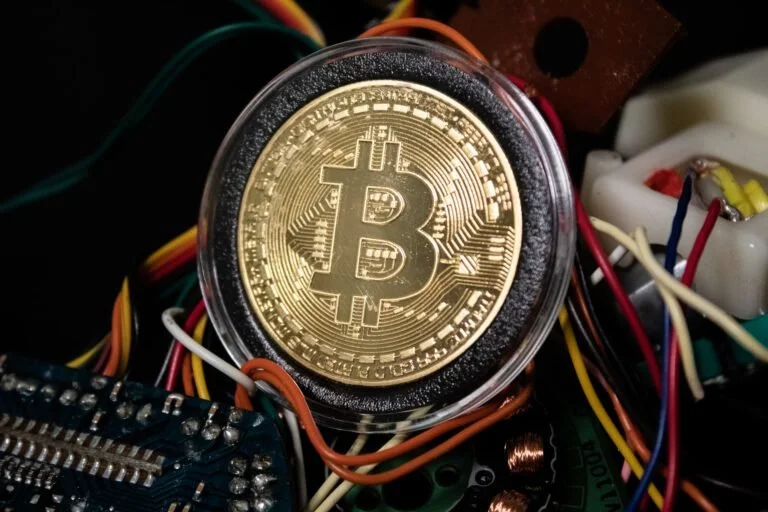Photo by Silas Köhler on Unsplash
With all the excitement around the recent Bitcoin ETFs it easy to forget the importance of self custody and what makes Bitcoin such a powerful bearer asset. Ever heard of the saying:
“Not your keys, not your coins”
For those new to self custody, it refers to the fact that if you don’t hold the signing keys for your Bitcoin, you don’t really own your Bitcoin. Every cycle has its casualties (read Mt Gox, FTX, Celsius … the list is endless) and mark my words, every cycle in the future WILL have its casualties.
"Those that fail to learn from history are doomed to repeat it." - Winston Churchill
If holding Bitcoin in an ETF is something you are doing or plan on doing, it’s important to understand why you are effectively giving away the “power’ of Bitcoin.
I’ll explain this by going into gold ownership and self storage. Many gold bugs understood the problem of fiat debasement and there are countless articles on why they say you should take ownership and store it yourself. This is all fine, but remember, massive futures contracts (paper gold) can be created to impact the supply and demand dynamics for both physical gold and gold ETF markets. One gold owner to the next does not know what each other own and there is no global registry to easily validate the total supply / demand of physical gold to see if more people are buying or selling (which is the thing that drives prices). To add to this, there is an inflation to gold which also needs to be factored in as the balance of physical gold increases as more gold is mined each year. All this said, those gold futures contracts can therefore not be kept in check allowing the price to be checked with fiat.
I actually feel for the gold bugs, they understood the problem but never really stood a chance. So how then is gold self storage and Bitcoin self custody different.
Firstly, Bitcoin is completely transparent, anyone can go onto a block explorer (here is Mempool.Space) and see every single transaction from when the protocol started.
There is effectively no inflation, there will only ever be 21 million. In fact some say it is even deflationary, there are coins that may never be spent (Satoshi’s coins, lost coins, deceased owners with no plan etc). Deflation in an asset you are storing your wealth in, actually buys you more (increasing your purchasing power).
There are no fees to store your Bitcoin like gold storage fess, you may only have to spend some network fees if you consolidate your UTXOs.
Unlike gold, there is an easy way to compare open Bitcoin futures contracts to actual Bitcoin. I.e You know the exact number of Bitcoin in the system (you don’t know this for gold).
At this point some will say, but there are also Bitcoin futures contracts and price will potentially be pushed around. The answer is yes this is true! But, here is the big but, this will only be temporary. People can easily see all the information on the Bitcoin blockchain and make educated decisions themselves on supply / demand dynamics. If paper future contracts are even 23 million Bitcoin ”short”, they will not find them, and they will be squeezed (just like our friends over at Melvin Capital who shorted more GameStop GME stock than the float).
In trading we refer to this as getting your “face ripped off”
A point to note, is that we are not saying you should never own gold (or even paper Bitcoin ETF) in any capacity, we are simply pointing out the custodial risk and what is given away by storing your wealth in these products.
You see, this is the true power of Bitcoin, like the image on this blog post, if YOU control the keys to the door, you control access to the other side. When you buy the Bitcoin ETF, you give this power away.
**Look out for Part 2 - where we dive into your different options for self storage, regardless of where you are on your journey.
If you haven’t yet followed our "platform verified” strategy - Rational Active Allocation, you can do so with as little as £20 per month. This is a custodial solution aimed at those just starting their Bitcoin journey.
DISCLAIMER
This publication is general in nature and is not intended to constitute any professional advice or an offer or solicitation to buy or sell any financial or investment products. You should seek separate professional advice before taking any action in relation to the matters dealt with in this publication. Please also note our disclosure here









